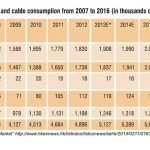October 10, 2014

Almost 60 customers from across the country joined PolyOne senior leadership and associates to celebrate the official opening of its new facility in Ranjangaon Industrial Park, near the city of Pune. The event lived up to its theme of “Come See the Difference” as customers saw demonstrations of technology and specialty solutions exclusive to PolyOne in the country.
PolyOne opened a facility in Mumbai in 2009 but positive feedback from customers, and the high growth projections for the Indian market, made it the perfect time for PolyOne to invest even further in India.
The new facility includes laboratories and manufacturing dedicated to solid and liquid color and additive solutions, and has ample capacity to accommodate future growth and expansion. Products produced at the facility serve multiple end markets, including transportation, healthcare, wire and cable and packaging.
PolyOne has solutions to help wire and cable manufacturers meet many of the challenges facing the industry. Recently introduced offerings include:
- ECCOH™ XLS, a moisture-cured technology that helps manufacturers reduce production and operating costs.
- Next-generation FireCon™ CPE (chlorinated polyethylene) RoHS-compliant material for wire and cable jacketing that processes 30% to 70% faster and reduces scrap for improved profitability without compromising performance.
- ECCOH™ LSFOH formulations for elevated temperature wire and cable help to meet UL requirements, maintain equipment flexibility, streamline secondary processing, and reduce scrap.
“We have a great team of associates here in Pune. Shifting production from our facility in Mumbai to Pune was challenging, but our customers barely noticed the transition. That is testament to the outstanding efforts of the entire team,” commented Vikas Vij, Managing Director of PolyOne’s operations in India. “This new facility not only enabled us to expand capacity, but it also allows us to offer customers specialty solutions, such as liquid color and additive formulations, that previously were not manufactured domestically.”





